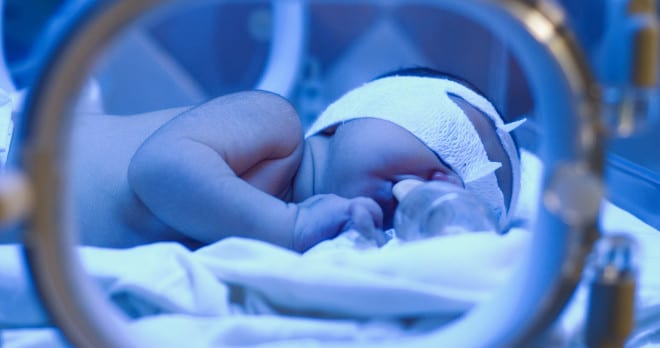International Prenatal Infection Awareness Month and Group B Strep

February is the international observance for International Prenatal Infection Awareness Month. The goal of this campaign, which was created in February 2007, is to assist women who are pregnant prevent infection and keep their unborn child safe and healthy. National charity Group B Strep Support says “If you are pregnant, you should make sure you know about group B Streptococcus.”
Effects of Group B Strep infection:
Group B Strep (or GBS) is one of the most common causes of severe neonatal infection in the UK and can cause sepsis and meningitis, usually within the first week of life. Such serious infections can cause brain injury and subsequent cerebral palsy, deafness or blindness. In severe cases the effects can be fatal.
It is carried by around 1 in 4 women, usually without any symptoms, but it can by passed from mother to baby during delivery. When antibiotics are given to women who carry GBS during labour 90% of these infections can be prevented. Alternatively babies can have antibiotics following their birth.
Despite this, the UK does not routinely test for GBS, or even inform pregnant women about the condition. The charity Group B Strep Support has campaigned tirelessly for a change for standard NHS care for pregnant woman so that all women are routinely tested as carriers of this infection. Their Chief Executive, Jane Plumb MBE recently won the award of “Tesco Mum of the Year” for her charitable work.
Great in-roads had been made by the charity to convince the UK government that the NICE Guidelines should be amended so that a ‘Gold Standard’ test for GBS infection is introduced for at risk pregnant women. The current test used (which is not routinely used) only picks up 2 out of every 5 women who carry GBS. The introduction of the better quality test was agreed in December 2012 however at the last moment the government stated:
"Following a meeting with the Group B Strep support group in December 2012, ministers and the Chief Medical Officer agreed that Public Health England should independently investigate the availability of the enriched culture medium (ECM) test and the clinical indications for its use. This work has now concluded and found that there is no indication for testing high-risk women using ECM methods within current clinical guidelines from the national Institute for Health and Care Excellence and therefore it would be inappropriate to make this test routinely available."
This is clearly a hugely disappointing decision and therefore the campaign continues to be made by the charity and also by many parents whose children have been catastrophically affected by this infection. Withy King’s medical negligence department have represented children who suffer from cerebral palsy as a result of untreated GBS infection and supports wholeheartedly the need for better screening and treatment of this acquired neonatal infection.
If you have a claim for Group B Strep. Please speak to one of our highly trained medical negligence solicitors on 0800 923 2073.